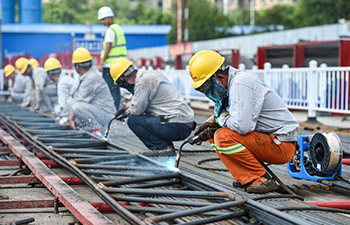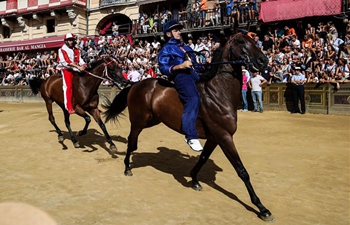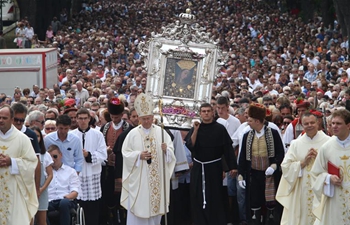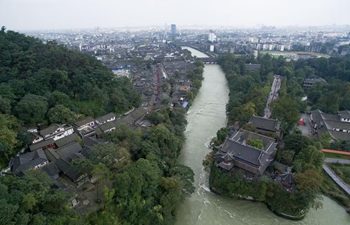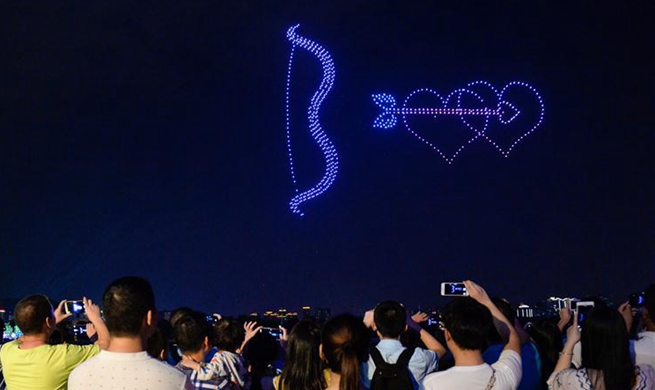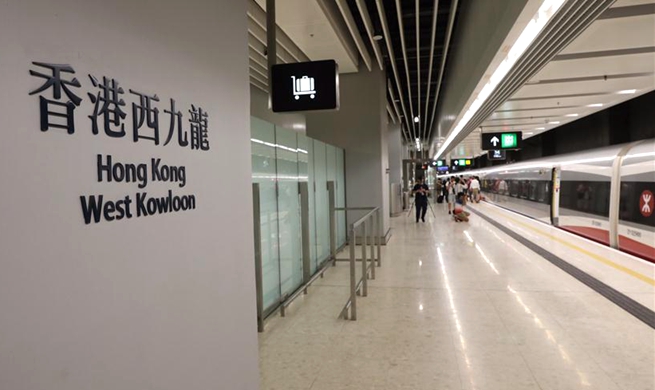LHASA, Aug. 17 (Xinhua) -- Chinese archaeologists have excavated more than 20 tombs thought to be around 2,000 years old in southwest China's Tibet Autonomous Region.
The excavation, an important part of ongoing joint field explorations in Ngari Prefecture, was launched by Sichuan University in early July.
According to Huo Wei, head of the university's School of History & Culture, more than 70 artifacts have been found in these tombs in Peyang Tunggar ruins, including bronze mirrors, fabric, pottery, and accessories.
"We found millet in a pottery cup and tea in a wooden box, which are believed to date back between the Han Dynasty (206 BC-220 AD) and Jin Dynasty (265-420)," said Huo. "We also discovered a central Asian bronze mirror with handles in one of the tombs."
Meanwhile, the skeletons of animals such as horses and cattle were found buried as sacrificial items in the tombs.
"The discoveries showed that there was a long stage of civilization in the Peyang Tunggar region, and the civilization had close ties with the surrounding areas," Huo said.
"Before Buddhism was introduced to Tibet in the seventh century, there was a period called Shangshung culture according to historical recordings. The location and historical dates of the tombs coincide with existing knowledge about Shangshung. They may have some connections," said Huo.
Since 1994, archaeologists have launched several investigations and excavations in the Peyang Tunggar ruins in Zanda County of Ngari, uncovering numerous Buddhist grottoes and ancient tombs.?




